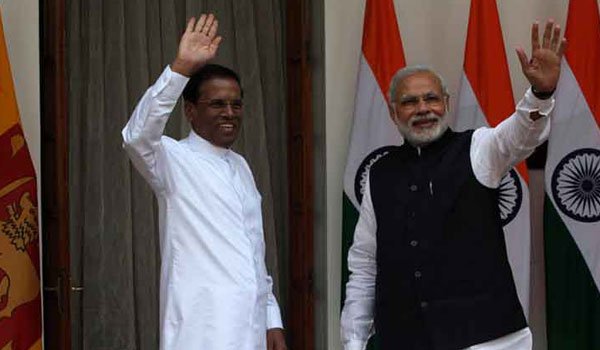There was no progress on the Tamil question. Sri Lanka also hosted two Chinese submarines last year, which made New Delhi apprehensive about its security and contributed to its reservations about the Chinese Maritime Silk Road (MSR) project. In January’s general elections, the opposition front led by Sirisena had promised a more “balanced” foreign policy. Sirisena thus made India his first foreign destination as president last month and Prime Minister Narendra Modi paid a quick return visit this month. In the event, Sirisena’s visit to China was an indication that while Colombo would like to nuance its ties with Beijing, it would not like to alienate China.
India, however, was not the only factor that has compelled a recalibration of Sri Lanka’s foreign policy. It also has to do with domestic dynamics. China got too closely identified with an increasingly unpopular Rajapaksa and the opposition came to view China’s investments in Sri Lanka as evidence of crony capitalism. Sirisena’s alliance, for instance, not only alleged that the interest rates on Chinese loans were too high but also raised questions about the financial viability of ventures such as the $1.5 billion Colombo Port City project, which Sirisena suspended pending a review of environmental and corruption issues.
Over the last few years, Beijing had invested heavily in cultivating Rajapaksa and begun pumping investments into a variety of projects, including a greenfield port in Hambantota. Given its critical location in the Indian Ocean and centrality to building Xi’s ambitious MSR project, China also views Sri Lanka from the strategic perspective. In fact, the Colombo Port City project is thought to be key to the MSR, and Colombo has contradicted reports about its readiness to resume it. Unsurprisingly, Xi appeared to underscore China’s commitment to Sri Lanka and cautioned Sirisena about abandoning Beijing’s projects. As Colombo seeks to recast ties with Beijing, Delhi must recognise that China will not easily let go of the neighbourhood. Its success in getting Nepal to toe its line on Tibet and the Dalai Lama at the Boao forum, which Sirisena also attended during his China visit, is another indication of the persistence of the “China card” in South Asian geopolitics. While China will continue to loom large in Sri Lanka, India’s real challenge is to rapidly consolidate its own strategic and economic partnership with Colombo and also address the Tamil issue with sensitivity.
(indianexpress.com)






